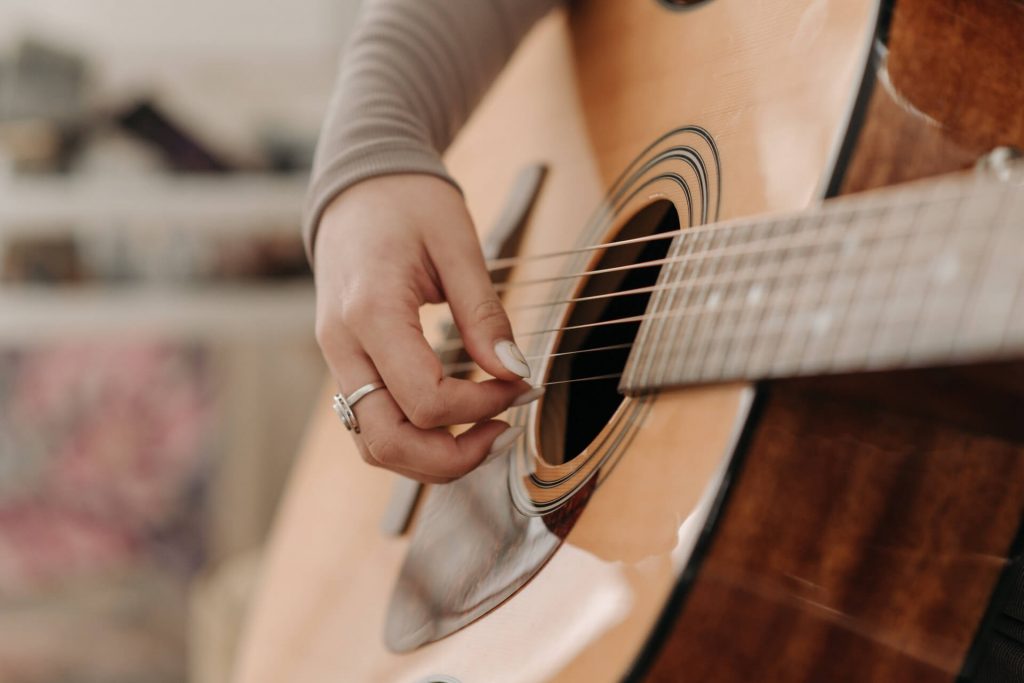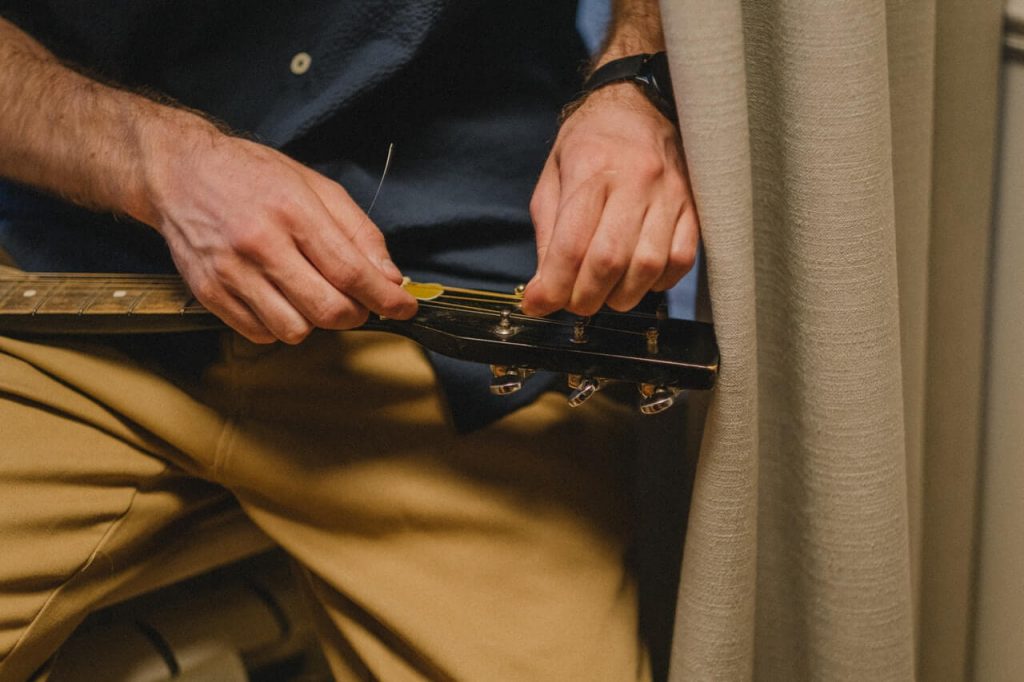You might be wondering, why does my acoustic guitar buzz, which interferes with the musical flow?
Here’s the thing: there are many reasons behind that.
To begin with, the fretted string plays a part in making your acoustic guitar buzz, especially when there’s a change in humidity. You need to check the frets look and find a solution for a fantastic experience with your acoustic guitar.
Additionally, don’t strum your guitar so hard; it causes excessive string vibration that increases buzzing.
Read on as we learn more about why your acoustic guitar buzzes.
Why Does My Acoustic Guitar Buzz?
1. Light Pressing
As much as you shouldn’t apply too much pressure on the string, there’s a need to use enough pressure on it. Even if you have the fingers in the right position without enough pressure, you will still experience problems.
As a starter, you may take additional time before learning about the right pressure, but you will master everything with time.
You can use the ultralight acoustic guitar strings to prevent your fingers from sores and hand pain as a beginner.
2. Improper Setup
After purchasing your acoustic guitar, ensure you set up all its component since they are interdependent in one way or another.
Sometimes you may mess up your guitar trying to adjust one position, and a buzz is a sign of wrong fixing.
If you doubt your fixing skills, consider taking it to a skilled repair person to avoid messy fixtures. They will ensure that your favorite guitar has no buzz.
Take time and learn to set up your guitar to avoid visiting the repair shop, even at the smallest repair.
3. Low Humidity
Don’t get surprised when your guitar acts up in low humidity areas. Guitars work perfectly in areas with low humidity ranging between 45% and 55%.
The temperatures in your house will also affect your guitar’s functionality, and if you are using a heater or air conditioner, your guitar gets too dry.
Additionally, if you live in dry climate areas, you need to measure the humidity and air around your guitar for proper functioning.
Get a digital hygrometer to help you measure humidity in your area, plus you can get an in-case guitar humidifier if you store your guitar in a case.
4. Unlevelled Frets
Another major reason why your guitar has a buzz is the unlevelled frets. Your guitar frets should be in line for the best sound.
What happens when the frets aren’t on level with each other? They touch each other resulting in a fret buzz.
Leveling the two frets on the fretboard creates a space between the top fret and the bottom, and as the guitar vibrates, there will be no buzz.
5. Tough Neck
Ensure that your guitar neck is in place, where it should be close to straight, and when it is well-tuned, there should be a small dip in the middle.
A dip allows you to measure the neck relief and ensure no back bow that causes less relief on the neck and a buzz on the first fret.
Which Fret Buzz is Normal on My Acoustic Guitar?
Different players have their preferences for the fret buzz; some are comfortable with a little fret, while others find any buzz uncomfortable.
Here are some ways to determine an abnormal buzz.
Too Much Buzz
- The guitar pitch isn’t altered by playing adjacent frets.
- The buzz prevents the note from sustaining.
- The buzz is audible in the amplifier.
The Right Buzz
- You can’t hear the buzz from the amp.
- The sound buzzes on the initial note only.
- It doesn’t affect the note’s sustainability.
Fixing the Acoustic Guitar Buzz
1. Fix Worn Out Parts
I know you treasure your old guitar, and you want to keep it forever. However, you need to check whether there are worn-out parts for fixing.
If your frets are worn out, consider changing to new ones, and remember to change all of them to keep the same height.
On the guitar head, check those tuners on the neck and ensure they are functional, and if they are worn out, replacing the whole set is easier.
2. The Action
Are you applying pressure on your strings, and the buzz is still there? Perhaps the problem is with the strings; they may be loose or too close to the frets, affecting the guitar’s action.
Fixing the bridge bone will help in moderating the action of the guitar. Slip a matchstick under it for better playing and if it doesn’t work, consider replacing the whole bridge bone.
Ensure that the notches are in place. There will be a lot of buzzing if the nuts are too deep, and the good news is that these cases are rare to find.
3. Adjust the String Height
Before you adjust the string height, ensure you have the right measurements without forgetting to check your manufacturers’ recommendations.
Use the string height gauge to indicate what changes you need to make. If a string is high, you need to lower it and vice versa.
Additionally, before you adjust the string heights, detune your string and add slack on it, not forgetting about adjusting the saddle.
If multiple strings need adjustment, you will need a radius key to keep the right curvature from the bridge.
4. Avoid Too Much Plucking
The harder you strum your guitar, the more you expose the strings to buzzing, especially when the action is too low or higher pickups.
If you apply too much pressure, ensure that you raise the action and lower the pickup heights.
Frequently Asked Questions
1. What Causes a Fret Buzz on My Guitar?
There are various reasons you could be experiencing frets, one of them being if they are not on level with each other. If your string action is too low, you will also experience a fret buzz.
2. When Can I Tell that My acoustic Guitar buzz is Abnormal?
If you can hear the buzz from your amplifier, it’s the right time to check the problem, plus if the buzz outdoes the tone sustainability.
3. Do I Need to Replace All My Guitar Strings if One is Worn Out?
The answer is yes. Replace all the strings to create a uniform length and level on the fretboard for functionality.
Final Thoughts
Purchasing the right acoustic guitar will help maintain it, and if you love your music loud, accompany it with an amplifier. Every guitarist should take every maintenance practice positively to keep the guitar in shape.
To avoid much trouble with the kids, purchase a mini acoustic guitar, and I am sure they will keep off your guitar. If you feel uncomfortable setting up your guitar, it’s good to go to a technician.






